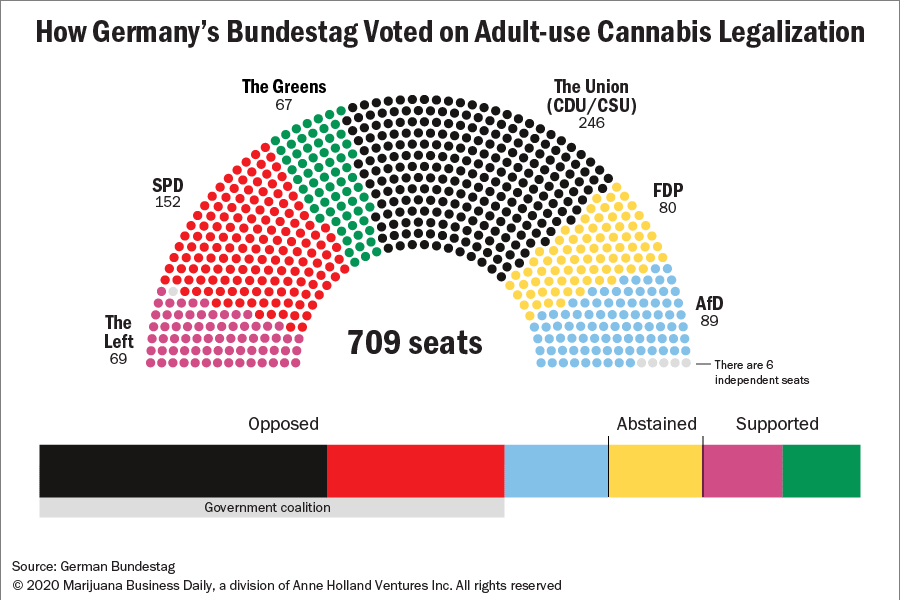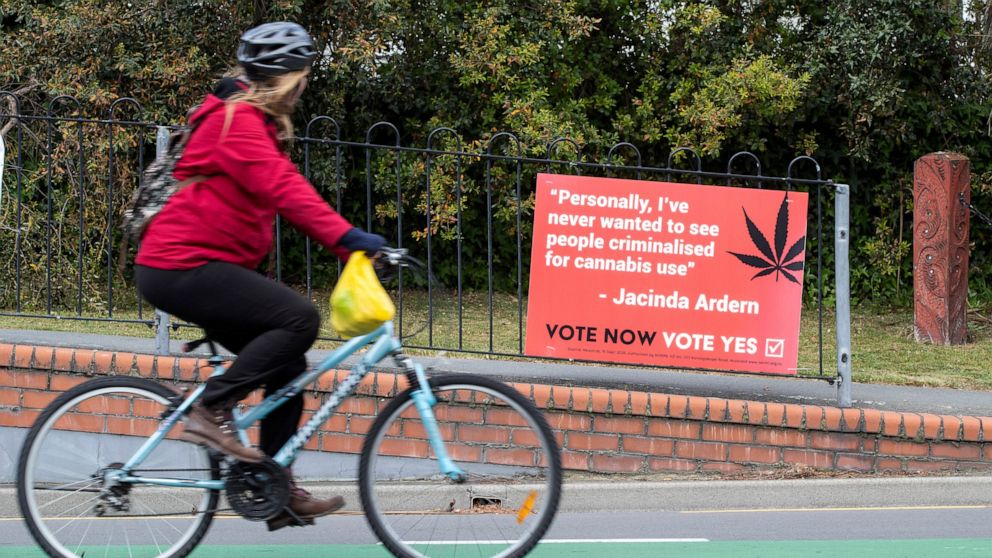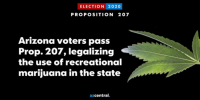Germany firmly rejects recreational marijuana legalization bill as hope fades for reform
Published 7 hours ago | By
Alfredo Pascual

The German federal parliament
rejected a bill to legalize a “strictly controlled” adult-use cannabis market, dealing a major setback to recreational marijuana reform efforts in that country.
The rejection came despite the fact
that a majority of the members of the Bundestang belong to a political party that favors some type of reform.
Legalization efforts during this legislative period are extremely unlikely because:
- German Chancellor Angela Merkel’s center-right, Christian-democratic political alliance – the Union – opposes any liberalization.
- The Social Democratic Party (SPD) is in favor of some reform – at least allowing experimental pilot programs – but cannabis reform has taken a back seat among Social Democrats who prefer to vote in tandem with their government coalition partner, the Union.
- Without favorable votes from at least some members of the government coalition parties – which have a majority in parliament – no legalization scenario is possible.
- Although most opposition parties are in favor of some type of legalization, they remain in the opposition and can’t agree on how that should be accomplished.
The rejected bill was tabled by the Green Party and had the support of only The Left party. The votes of the two parties combined fell short.
The Free Democratic Party (FDP), meanwhile, abstained from voting.
FDP legislators spoke in favor of legalization but didn’t agree with the specific bill presented by the Green Party – preferring a more hands-off approach to legalization.
Wieland Schinnenburg, drug policy spokesman for the FDP, said his party wants a “cannabis liberty law” instead of the “cannabis control law” proposed by the Green Party, which is “full of regulations” that would prevent a future legal marijuana market from functioning.
As expected, Germany’s ruling coalition parties Union and SPD voted against the bill.
Without their votes, no legalization is likely in the foreseeable future, contrary to what some Canadian cannabis executives
have been predicting.
The SPD legislators who spoke about the issue signaled support of some relaxation of cannabis laws, but they rejected the legalization bill because of “coalition discipline.”
The Union – the largest political alliance in parliament – rejected the bill because members firmly oppose any recreational marijuana reform.
Right-wing party Alternative für Deutschland (AfD) was the only opposition party that voted against the bill.
Other proposals
Separately, several cannabis-related motions proposed by opposition parties were also turned aside. These included proposals by:
- The AfD to treat medical cannabis products like any other medicine in terms of having to prove the efficacy of the treatment. The measure was soundly rejected. This was the only positive result of the day for the regulated cannabis industry, which favors looser regulation.
- The FDP to allow a recreational marijuana experiment.
- The FDP to drastically increase the quantity of medical marijuana grown in Germany.
- The Left to decriminalize possession of up to 15 grams of cannabis.
Another
Left motion, to allow a small amount THC in the blood when driving, comparable to the maximum alcohol concentration currently allowed in Germany, was sent to the Bundestag transportation committee for further discussion.
Next elections
With little chance of recreational marijuana reform being passed during the current legislative period, the question becomes what could happen after the next federal elections, which is expected in about one year from now.
While it’s still too early to predict results – particularly which parties will be in the government and which ones will be in opposition – one signal is positive for adult-use cannabis reform.
Current polls indicate the Green Party is rising in popularity at the expense of the SPD.
Although both the SPD and the Green Party favor marijuana reform, recreational cannabis reform seems to have a higher priority for the Greens.



 I'm just a laymen, But I guess he was able to work with a compound that produces other compounds as well as THC and CBD.
I'm just a laymen, But I guess he was able to work with a compound that produces other compounds as well as THC and CBD.





